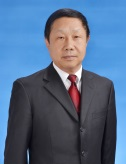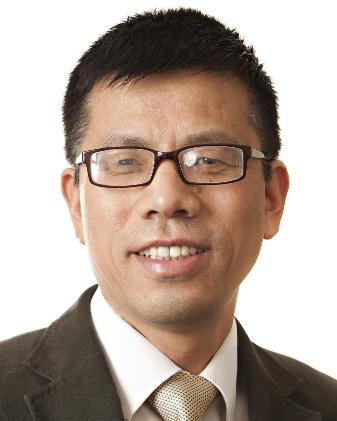
Prof. Hong-Zhong Huang
University of Electronic Science and Technology of China, China
Title: Scientific Problems and Engineering Challenges in Reliability Engineering
Abstract: This talk will examine frontier scientific problems in complex-system reliability, highlights AI-enabled opportunities in reliability-related research, explores intelligent fault prognostics and service-safety assurance through the integration of monitoring big data with domain knowledge, and discusses emerging application scenarios alongside the associated engineering challenges for future systems.
Biodata: Dr. Hong-Zhong Huang is a distinguished scholar and Professor of Reliability Engineering in the School of Mechanical and Electrical Engineering at the University of Electronic Science and Technology of China (UESTC). He is also the Director of the Center for System Reliability and Safety at UESTC. Professor Huang received his PhD degree in Reliability Engineering from Shanghai Jiao Tong University, Shanghai, China, in 1999. He has held visiting appointments at several universities in the USA, Canada, and Asia. His research interests include reliability modeling, uncertainty quantification, prognostics and health management (PHM), lifetime prediction, and maintenance decision-making. He has authored or co-authored more than 380 peer-reviewed journal papers and eight books in these areas. His research contributions have significantly advanced methodologies for system reliability analysis, lifetime prediction, and PHM. He received the William A. J. Golomski Award from the IISE in 2006, and the Best (Student) Paper Award at several international conferences and journals. Professor Huang is Chairman and Co-Chairman of several international Conferences, Co-Chair of National Chapter of European Safety and Reliability Association (ESRA) in China, a member of ESRA Technical Committee on Foundations of Risk and Reliability Assessment and Management, System Reliability Applications. He is a Fellow of the International Society of Engineering Asset Management (ISEAM) and serves as the Editor-in-Chief of the International Journal of Reliability and Applications, Co-Editor-in-Chief of the Journal of Reliability Science and Engineering, and is on the editorial boards of several other journals, including Reliability Engineering and System Safety. He is elected as the Highly Cited Chinese Researcher 2014-2025 by Elsevier and Top 2% of the World scientists by Stanford University.

Prof. Chunhui Zhao
Zhejiang University, China
Title: S2S: LLM-powered Times Series Understanding for A Novel Explainable Fault Diagnosis Framework
Abstract: Fault diagnosis is a critical link in ensuring the safe operation of industrial systems. Traditional time-series data diagnosis models typically output abstract results, such as anomaly scores or fault categories, but they cannot answer key questions like "why the fault occurred" or "how to perform maintenance." Although large language models (LLMs) show great potential for fault diagnosis, they face the challenge of a semantic gap when processing time-series industrial signals; that is, continuous temporal data are difficult to encode into discrete tokens that language models can effectively process. Differing from the traditional "signal-to-category" paradigm in fault diagnosis, we propose a novel explainable fault diagnosis framework, namely the "Signal-to-Semantics" (S2S) fault diagnosis framework. Our research replaces the original paradigm of mapping abstract time-series data to abstract diagnostic results, and instead outputs reasoning processes and diagnostic texts that are comprehensible and verifiable by human experts, establishing a new generation of intelligent diagnosis frameworks for industrial equipment.
Biodata: Chunhui Zhao received the B.S. degree in automation from Northeastern University,Shenyang, China, in 2003. She received the M.S. and Ph.D. degrees in Control Theory andControl Engineering from Northeastern University, Shenyang, China, in 2006 and 2009.respectively.
She was a research associate with the HongKong University of Science and Technology,Hong Kong (Jan. 2009-June 2010), postdoctoral fellow with University of California, SantaBarbara, CA, USA (June 2010-Jan. 2012) and adjunct investigator with Sansum DiabetesResearch Institute, Santa Barbara, CA, USA (June 2010-Jan. 2012). She is currentlyProfessor with Department of Control Science and Engineering, Zhejiang University, Hangzhou, China. Her research interests include multivariate statistical analysis andmodeling; Chemical process monitoring; fault detection and diagnosis; quality interpretationand prediction; artificial pancreas, glucose monitoring and prediction for type 1 diabetes. Shehas published over 50 SCI-cited international journal papers in the relevant areas.

Prof. Lirong Cui
Qingdao University, China
Title: Shock Damage Evolution Stochastic Processes and Their Analyses
Abstract: Shock is an important cause of damage to systems, thus shock models have been widely studied in reliability. Most related researches have focused primarily on damage effects of shocks treated as constants after the arrivals of shocks, which may not be true in some practical situations. Because of the presence of self-healing, deterioration, and variation over time, environment changes and other factors, the damage effects caused by the shocks may have some self-evolutions (active and passive). In this talk, we shall discuss the patterns of shock arrives first, then study several possible damage effects after shock arriving. Thirdly, the shock damage analyses including probabilistic modelling, assessment and decision-making are considered based on the shock arriving patterns, damage effects and damage evolution. Fourthly, the challenges and possible future researches are proposed. Finally, the presentation is concluded. The talk outlines not only the related studies and framework, but also may shed light on the related depth researches and extensive applications.
Biodata: Lirong Cui is a distinguished professor and ISEAM fellow in Business School of Qingdao University. He graduated from Tianjin Polytechnic University in 1983 (Bachelor of Engineering), from Institute of Systems Science, Chinese Academy of Sciences in 1986 (Master of Science), and from University of Wales (Swansea) in 1994 (PhD in Probability and Statistics). He worked at the Ministry of Aerospace Industry of China from 1986 to 1999, at National University of Singapore from 2000 to 2022, and at the School of Management of Beijing Institute of Technology from 2003 to May 2021. He has been working in Qingdao University since May 2021. He worked as a visiting scholar in the UK and Taiwan, China. He was an associate editor of IEEE Transactions on Reliability for 10 years (2005.1-2015.9). He serves currently an associate editor of IISE Transactions, Communications in Statistics, Quality Technology & Quantitative Management, and is a member of editorial board for several journals such as Methodology and Computing in Applied Probability etc. He was and/or is now the branch director and deputy director of several academic organizations. He has published more than 170 SCI indexed papers and 1 English monograph. In 2005, he was named the new century outstanding talents of the Ministry of Education. He has supervised more than 40 PhD students and nearly 300 master students in mathematical and/or management subjects. He has chaired (was and is now) 6 general programs and 1 key program of the National Natural Science Foundation of China. Three international conferences he organized were funded by the National Natural Science Foundation of China as well. At present, his main research interests are: system reliability, aggregated stochastic process and repairable system modeling, degradation system reliability, finite Markov chain embedding method, cascade failures, balanced system reliability, optimal matching, Hawkes process, stochastic differential equations in reliability, data-based modeling and analyses, etc.

Prof. Hua-Peng
Chen
East China Jiaotong University, China
Title: Structural Health Monitoring and Reliability Assessment of Jiujiang Bridge
Abstract: Structural health monitoring system provides valuable
information for the fatigue reliability assessment of existing rail-cum-road
bridges. This presentation aims to develop an effective fatigue assessment
approach for the rail-cum-road bridge, Jiujiang Yangtze River Bridge, by
utilising the monitored data, focusing on dynamic modal analysis, finite element
model updating and fatigue assessment. First, the traffic load spectrum and
modal characteristics of the bridge are investigated from the monitored data. A
three-dimensional finite element model is constructed and then updated by using
the measured modal data through the proposed regularised model updating method.
Then, the updated numerical model is verified with the measured dynamic response
data, which can be utilised for calculating stress response at critical
structural components of the rail-cum-road bridge. Finally, an improved Corten-Dolan’s
model is proposed to analyse the fatigue damage and structural reliability of
the critical structural components of the bridge, taking into account the
combined effects of train and highway vehicle loads. The results demonstrate
that the proposed fatigue reliability assessment method provides more reliable
results for the rail-cum-road bridge by considering the combined effect of
multi-level traffic loads and the non-linear fatigue damage accumulation. It is
concluded that the short H-shaped suspender is identified as the most vulnerable
structural member of the rail-cum-road bridge, and the remaining fatigue service
life of the typical components of the bridge should meet the design requirement.
Biodata: Dr. Hua-Peng Chen is a former Professor of Civil Engineering at the University of Greenwich, UK, after having studied at Imperial College and received PhD from the University of Glasgow, UK. He is a Distinguished Professor and Director of Smart Transportation Infrastructure at East China Jiaotong University. He is the author of over 250 peer-reviewed publications and a book published by Wiley, focusing on smart structures, structural health monitoring and structural reliability assessment. He serves as an Associate Editor for ASCE Journal of Aerospace Engineering and a member of editorial board for three international journals. He is a Chartered Civil Engineer (UK) and a Fellow of the Institution of Civil Engineers (UK). Professor Chen has been ranked many times as the World’s Top 2% most-cited scientists by Stanford University.
© SRSE 2019-2026 | Xi'an, China | For inquiry: srse@sciei.org. For official notice: srse_official@163.com